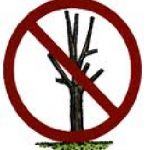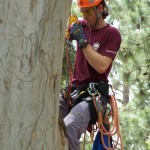Topping or lopping a tree is expensive The cost of topping or lopping a tree is not limited to what the perpetrator is paid. If the tree survives, it will require pruning again within a few years. It will either need to be reduced again or storm damage will have to be cleaned up. If the …
Category Archive: Arboriculture
Aug 02
Hiring an Arborist
Hiring an Arborist Pruning large trees can be dangerous. If pruning involves working above the ground or using power equipment, it is best to hire a professional arborist. An arborist can determine the type of pruning that is necessary to improve the health, appearance, and safety of your trees. A professional arborist can provide the …
Aug 01
Tree Profile Hymenosporum flavum (Native frangipani)
Hymenosporum flavum or native frangipani is one of the most hardy and popular Australian indigenous species in cultivation. Hymenosporum flavum is the only species in the genus Hymenosporum making it a monotypic species! The genus closely resembles Pittosporum. It is indigenous to coastal brush forrests of eastern Australia. It has a fairly narrow growh habit. …
Jul 31
Tree Profile Elaeocarpus reticulatus (Blue Berry Ash)
Elaeocarpus reticulatus or “Blue Berry Ash” has definitely got to be one of my favourite trees in South East Queensland. Elaeocarpus reticulatus is a small tree or shrub usually grown for its frosty like blueish foliage and electric blue berries. The frosting effect on the margin of the leaves is believed to be caused from …
Jul 25
Myrtle Rust (Uredo rangelii) is a Major Concern.
Myrtle rust is causing great concern for Arborists and Tree Care professionals nation wide. Myrtle rust is a disease caused by a fungus which is spread via spores on contaminated clothing, infected plant material, insects, wind and animals. Myrtle rust affects plants in the Myrtaceae family and some of the species it infects …








